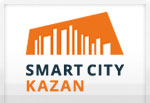Rustam Minnikhanov gets acquainted with new projects in chemistry, electronics and IT at a Board meeting of Tatneftekhiminvest holding
29.03.2024On March 29, at the Government House of the republic, the Rais (Head) of Tatarstan Rustam Minnikhanov chaired a regular meeting of the Board of Directors of the Tatneftekhiminvest holding, where he got acquainted with new projects in chemistry, electronics and IT, among them are components for Li-on batteries, disposal of organochlorine waste, supercomputer calculations, two-story 3D printer and digital deposit.
The Doctor of Chemical Sciences, Head of the Laboratory of the Topchiev Institute of Petrochemical Synthesis of the Russian Academy of Sciences Nikolay Kuznetsov said in his report that it is possible to organize the production of basic components of electrolytes for lithium-ion (Li-on) batteries at Nizhnekamskneftekhim (branch of SIBUR). The batteries are used in electric vehicles, electronics and drones.
Academician of the Russian Academy of Sciences, President of the Russian Technological University MIREA (Moscow State Institute of Radio Engineering, Electronics and Automation) Aleksandr Sigov presented the technologies of recycling and decontamination of organochlorine waste.
Projects for the production of vinyl chloride and other compounds and innovative developments for microelectronics were also discussed.
Academician of the Russian Academy of Sciences, director of the Novosibirsk Institute Dmitry Markovich spoke about the Kutateladze Institute of Thermophysics of the Siberian Branch of the Russian Academy of Sciences, which conducts developments for various industries - from thermal power engineering to astronautics and equipped with unique equipment. In 2022, a youth research laboratory for supercomputing and artificial intelligence in energy technologies was created on its basis. Among the institute's competencies are computer engineering and technologies based on plasmochemical combustion.
Director General of the Moscow «3D-Integration» scientific development and production center Mikhail Rodin said that Tatarstan can become the additive capital of Russia. For this purpose, Russia’s first additive technology plant and a center for small-scale contract production will be built in the Laishevo industrial park. By 2032, they intend to produce almost 300 industrial 3D printers per year. “Our goal is to make these technologies fully Russian. We focus on industrial technologies of metal and ceramic compounds. In Russia, the market lags behind by 5 years, and we expect that the pace will increase. We held negotiations with Innopolis. We plan to create a two-story printer”, the speaker said.
The Press Office of the Rais of Tatarstan. Using materials from the Devon Information Agency.
-
 Educational portal of RT
Educational portal of RT
-
 Investment portal of RT
Investment portal of RT
-
 SMART City Kazan
SMART City Kazan
-
 State Television and Radio Broadcasting Company "Tatarstan"
State Television and Radio Broadcasting Company "Tatarstan"
-
 Online services of Russian Pension Fund
Online services of Russian Pension Fund
-
 45th WorldSkills Competition 2019
45th WorldSkills Competition 2019
-
 Fund «Yanarysh»
Fund «Yanarysh»
-
 Business centre of RT
Business centre of RT
-
 The City of Kazan
The City of Kazan
-
 Kazan City Tourist Portal
Kazan City Tourist Portal
-
 Tatarstan Book House
Tatarstan Book House








